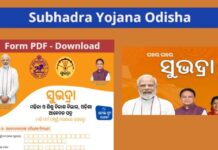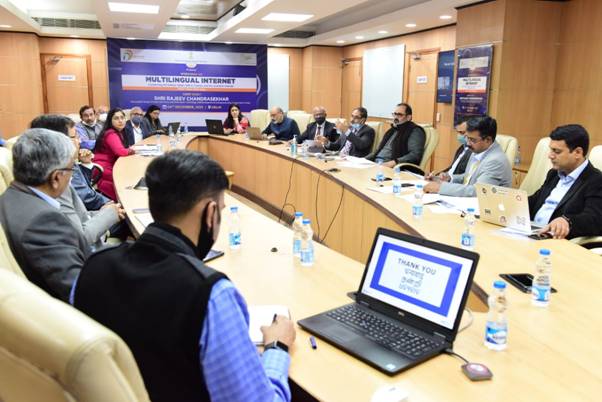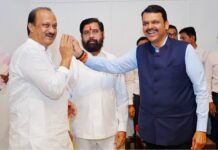“Prime Minister Narendra Modi’s vision of Digital India is to ensure that Internet reaches and empowers all Indians. For this, Multilingual Internet is not a challenge but an urgent requirement.” said, Minister of State for Electronics & Information Technology, Rajeev Chandrasekhar. During a workshop organised by Ministry of Electronics and Information Technology (MeitY) on multilingual internet, Rajeev Chandrasekhar laid out government’s ambition to have a multilingual internet in order to connect all Indian. He said that the biggest reforms in the education Sector in the history of Modern India – the New Education Policy, encourages the use of regional languages as a medium of instruction. Therefore, it is imperative that the Internet as well as technology platforms are supportive of regional languages to ensure Digital inclusion. MeitY will partner with industry to finalize a roadmap towards achieving the strategic Goal of making the Internet Multilingual.
The Ministry of Electronics and Information Technology (MeitY) organized a workshop titled “Multilingual Internet (Connecting All Indian: Open, Safe & Trusted and Accountable Internet)” to have a roadmap on multilingual Internet in India. The workshop invited both public and private stakeholders including representatives from Google, Microsoft, Mozilla, Zoho Corporation, Rediff, XgenPlus; academia, industry bodies and officials from MeitY, National Informatics Centreand National Internet Exchange of India.
Sharing the vision of PM’s on Digital India Mission, Rajeev Chandrasekhar said, in 2015, the Prime Minister Narendra Modi launched the Digital India Mission with 3 major outcomes― to transform lives of Indians, expand economic opportunities with digital entrepreneurship, and enhance strategic capabilities in certain technologies including the internet so that the future of internet is shapened by countries that are open societies and share the same set of democratic values & respect citizen rights. He said “with the internet becoming progressively more prominent, and the next 400 million Internet users very likely from the semi-urban and rural areas, it becomes crucial to ensure access to the internet without any disadvantage or discrimination.” He further stated that “It is an urgent requirement as a country to take the internet forward. Lack of knowing language should not be a reason of exclusion of any citizen. It becomes imperative that all stakeholders must unite together to make the Internet accessible to every citizen”.
Speaking on the occasion, Shri Ajay Prakash Sawhney, Secretary, Ministry of Electronics & IT, said that “Internet has reached large number of Indians but still for many citizens it is inaccessible since, most of the content is in English. Through multilingual internet we can connect 400 million more internet users”.
The Internet Governance Division, MeitY and NIXI and National Informatics Centre through a presentation talked about the progress made in Multilingual Internet which was initiated at the first World Summit on the Information Society (WSIS) under United Nation in 2003. The presentation also went in-depth discussing the issues that India is facing in its journey towards a truly Multilingual Internet.
The key takeaways from the workshop emphasised that stakeholders in India needs to collectively work together to achieve this aim. Consequently, they presented various proposals for different players in the market particularly emphasising on browsers and email service providers.
Closing the session, Minister of State, Shri Rajeev Chandrasekhar stated that “establishing the fundamental and structural block for Internationalised Domain Names, search engine and email issues in Indian languages is the need of the hour. The element that government has to mitigate is search engine and email address and a roadmap must be initiated in accordance with the stakeholders to further this initiative”. A stakeholder working group will be established to create a roadmap on fundamental issues of Universal acceptance and Multilingual Internet. This would also touch up the cyber security issues.





































